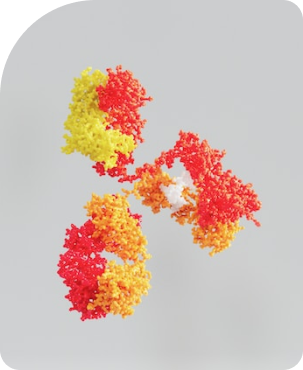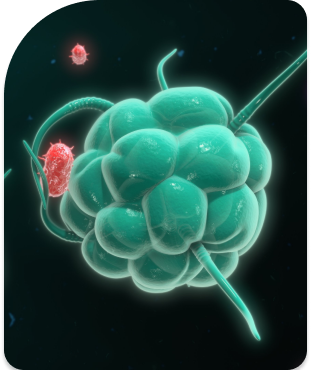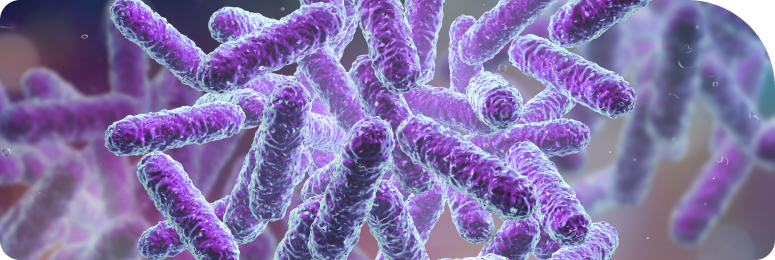CHO-H01
Target : CD20
Overview
CHO-H01 is the world’s first glycoengineered biobetter antibody with homogeneous, fully a2,6-sialylated biantennary glycan. It targets CD20, a surface marker specifically expressed on B cells. The major mechanisms of actions of CHO-H01 include antibody-dependent cellular cytotoxicity (ADCC), antibody-dependent cellular phagocytosis (ADCP), complement-dependent cytotoxicity (CDC) and apoptosis. Comparing to its non-glycoengineered parental, CHO-H01 shows increased binding affinity to FcγRIIIa, ADCC actvitiy (by 30-50 folds) and suppressive effects for tumor xenografts in the preclinical studies. Moreover, CHO-H01 also shows potent ADCC activity to B lymphoma cells resistant to Rituximab.
Status
CHO-H01 is currently in Phase I/IIa, recruiting subjects with refractory non-Hodgkin lymphoma (NHL).

References
A common glycan structure on immunoglobulin G for enhancement of effector functions. Proc Natl Acad Sci U S A 112(34):10611-10616.
CHO-H02
Target : HER2
Overview
The CHO-H02 project is a next-generation antibody drug targeted HER2, an oncogenic receptor highly expressed on many solid tumors, including breast, bladder, pancreatic, ovarian, and gastric cancers. Several drug candidates, such as glycoengineered biobetter and ADCs conjugated with cytotoxin or immune-modulator, have been generated via our proprietary glycoengineering platform technology CHOptimax™. Combined with our disease-centric approaches, the best candidate will be selected and developed for clinical application.
Status
CHO-H02 is at preclinical stage with a number of drug candidates being intensively evaluated for different indications.

References
A common glycan structure on immunoglobulin G for enhancement of effector functions. Proc Natl Acad Sci U S A 112(34):10611-10616.
Antibody-drug conjugates with dual payloads for combating breast tumor heterogeneity and drug resistance. Nat Commun 12(1):3528.
Immune-stimulating antibody conjugates elicit robust myeloid activation and durable antitumor immunity. Nat Cancer 2(1):18-33.
CHO-H03
Target : undisclosed
Overview
CHO-H03 is an antibody drug aiming to alleviate the inflammatory conditions in autoimmune diseases such as rheumatoid arthritis, ulcerative colitis and Crohn’s disease. Engineered by CHOptimax™ technology, CHO-H03 displays increased FcγR binding and induction of regulatory macrophages, which have anti-inflammatory properties and play an important role in mucosal healing. In addition, the specific glycoform of CHO-H03 is expected to reduce generation of anti-agalactosyl IgG, thus further enhancing drug half-life and therapeutic benefits.
Status
CHO-H03 is currently at pre-clinical development stage for functional characterization and evaluation.

References
Macrophages in intestinal inflammation and resolution: a potential therapeutic target in IBD. Nat Rev Gastroenterol Hepatol 16(9):531-543.
Regulatory macrophages induced by infliximab are involved in healing in vivo and in vitro. Inflamm Bowel Dis 18(3):401-408.
Association among periodontitis severity, anti-agalactosyl immunoglobulin G titer, and the disease activity of rheumatoid arthritis. J Periodontal Res 56(4):702-709.
CHO-A04
Target : SSEA-4

Overview
CHO-A04 is a humanized monoclonal antibody with the optimized Fc-glycan. It targets SSEA-4, a glycosphingolipid highly expressed on various types of tumor cells and cancer stem cells. Elevated expression of SSEA-4 was reported to correlate with tumor progression and chemotherapy resistance, making it an attractive therapeutic target for cancers. Empowered by CHOptimax™, CHO-A04 not only exhibits potent anti-tumor effects both in vitro and in vivo but also demonstrates safety and tolerability in non-human primates.
Status
CHO-A04 is currently in Phase I/IIa, recruiting subjects with advanced solid tumors.

References
Stage-specific embryonic antigen-4 as a potential therapeutic target in glioblastoma multiforme and other cancers. Proc Natl Acad Sci U S A 111(7):2482-2487.
Expression of stage-specific embryonic antigen-4 (SSEA-4) defines spontaneous loss of epithelial phenotype in human solid tumor cells. Glycobiology 25(8):902-917.
The sialyl-glycolipid stage-specific embryonic antigen 4 marks a subpopulation of chemotherapy-resistant breast cancer cells with mesenchymal features. Breast Cancer Res 17(1):146.
CHO-V08
Target : Klebsiella pneumonia

Overview
Klebsiella pneumonia (KP) has been the number one bacterium causing nosocomial infections for many years. It causes severe respiratory tract and urinary tract infections, especially to patients with compromised immunity. Up to date, there is no effective vaccine to prevent severe hospital or community infections caused by KP. CHO PHARMA is equipped with advanced carbohydrate-based vaccine technology to develop a bivalent vaccine that targets two major pathogenic serotypes K1 and K2. Preclinical studies have proven that CHO-V08 vaccine can induce potent antibody response against the hypervirulent KP strains.
Status
CHO-V08 is currently in a Phase 1 clinical trial designed to evaluate its safety and immunogenicity in healthy adult volunteers.

References
Development of Klebsiella pneumoniae Capsule Polysaccharide-Conjugated Vaccine Candidates Using Phage Depolymerases. Front Immunol 13:843183.